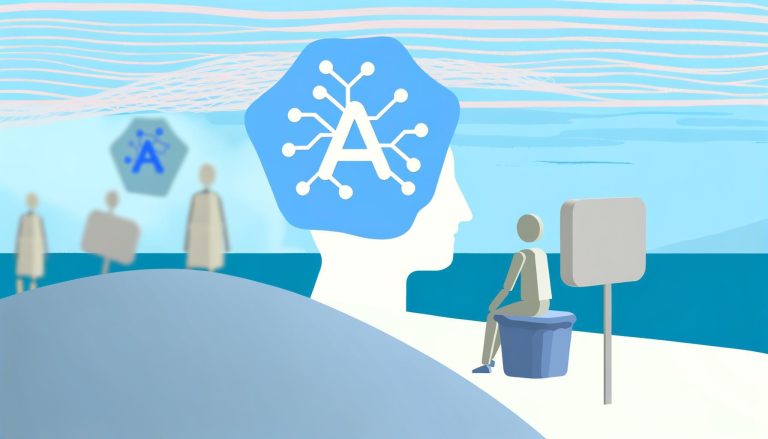The use of artificial intelligence (AI) in the field of mental health is gaining traction, offering new avenues for diagnosis, treatment, and support. One area where AI’s impact is being increasingly explored is in treating Reactive Attachment Disorder (RAD), a complex psychological condition most common in children who have experienced early childhood trauma or a disruption in attachment to a primary caregiver. This article examines how AI is transforming the treatment landscape for RAD, integrating insights from psychology, technology, and human care practices.
Understanding Reactive Attachment Disorder
Reactive Attachment Disorder is characterized by a child’s difficulties in forming healthy attachments with caregivers, often due to severe neglect or inconsistent care during the first few years of life. Symptoms may include emotional withdrawal, resistance to comfort, lack of social reciprocity, and difficulty in forming trusting relationships.
Causes and Symptoms
- Historical neglect or abuse
- Frequent changes in primary caregivers
- Poor attachment to caregivers, leading to an inability to form typical attachments
- Emotional suppression or avoidance
- Engagement in self-destructive behaviors
Challenges in Treatment
Treating RAD is complex and often requires a multifaceted approach, including therapy with both the child and their caregivers. Traditional therapeutic methods might include play therapy, family therapy, and behavioral interventions, aiming to establish trust and nurturing, supportive relationships. However, these approaches can be time-intensive and require consistent effort from both therapists and families.
How AI is Revolutionizing RAD Treatment
AI technology offers groundbreaking possibilities in diagnosing, monitoring, and supporting the treatment of RAD. By leveraging advancements in machine learning and data analysis, AI can provide personalized insights and interventions that complement traditional therapy methods.
Advanced Diagnostic Tools
AI algorithms can analyze huge datasets to identify patterns indicative of RAD, even before severe symptoms manifest. These tools can process behavioral data, social interactions, and physiological metrics, aiding in early detection and intervention.
Personalized Treatment Plans
AI systems can help create more tailored treatment plans by analyzing individual patient data to predict which therapeutic methods are likely to be most effective. This customization can lead to improved outcomes and more efficient use of therapeutic resources.
Ongoing Monitoring and Support
- Emotion Recognition Software: AI can monitor a child’s emotional responses and social interactions in real-time situations, providing feedback to therapists and caregivers.
- Virtual Reality (VR): VR experiences powered by AI can help children with RAD practice social interactions and develop emotional regulation skills in a safe and controlled environment.
- Interactive AI Companion Apps: These can offer children a non-judgmental space to express themselves and practice emotional skills outside of therapy sessions.
Bridging the Gap with Caregivers
AI can also empower caregivers by providing tools that monitor and report on the child’s progress in treatment. These tools can offer real-time advice and strategies that caregivers can use to support their child’s emotional growth and attachment formation.
Practical Tips for Utilizing AI in RAD Treatment
While AI offers many benefits, successful integration into RAD treatment requires careful implementation and consideration.
Choosing Appropriate Tools
It is essential for caregivers and healthcare providers to select AI tools that are evidence-based and have shown efficacy in similar contexts. Consultation with specialists familiar with both AI and RAD is recommended for making informed decisions.
Combining with Human Insight
AI should complement, not replace, human judgment and empathy. The most successful treatment plans will integrate AI insights with the expertise and intuitive understanding of experienced therapists.
Maintaining Ethical Standards
Incorporating AI technology necessitates attention to privacy and ethical considerations. Ensuring that data is used responsibly and that children’s identities and personal information are protected is paramount.
Continuous Evaluation and Feedback
Careful monitoring of AI’s effectiveness in RAD treatment is necessary to ensure it is achieving desired outcomes. Regular feedback and adaptation of strategies based on a child’s response will ensure that interventions remain relevant and beneficial.
Conclusion: The Future of AI in RAD Treatment
The future of AI in treating Reactive Attachment Disorder is promising, providing opportunities for earlier intervention and more personalized care. As AI technology continues to evolve, so too will its capacity to enhance the treatment of RAD, ultimately leading to better health outcomes for children who struggle with this challenging disorder. Integrating these innovations into therapeutic practice requires collaboration between technologists and mental health professionals to ensure that the benefits of these technologies are fully realized.
As technology and human care practices continue to merge, tools like AI can significantly contribute to the emotional well-being of individuals with RAD. In conjunction with traditional therapy, AI presents a powerful ally in creating a more empathetic and adaptive approach to treating mental health disorders.
For those interested in monitoring progress and understanding behavioral trends, tools like the Zenora app can be invaluable. By tracking moods and habits, users can gain insights into their emotional patterns and work toward developing stronger and healthier relationships.





